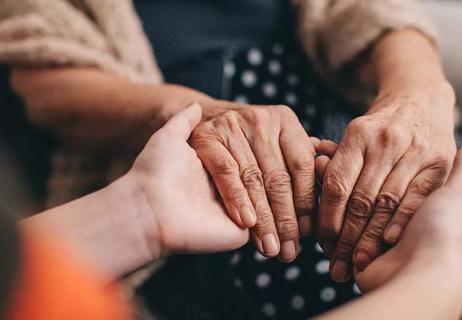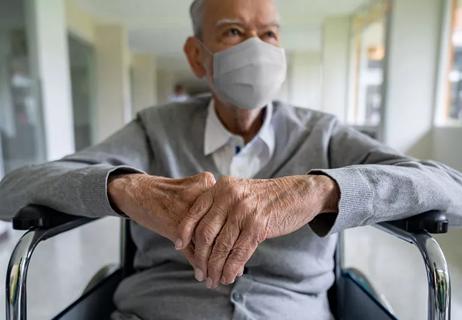This role designates a stand-in partner when you can’t make medical decisions for yourself

When asked how we envision the end of our lives, most of us could probably conjure up the best-case scenarios for how we want to be taken care of and how we prefer to die.
Advertisement
Cleveland Clinic is a non-profit academic medical center. Advertising on our site helps support our mission. We do not endorse non-Cleveland Clinic products or services. Policy
But tragedy can strike suddenly and without warning. If you’re not clear about your end-of-life requirements, you could end up leaving many of your loved ones in the dark about which medical interventions you want and how you prefer your final days or hours handled.
Critical care specialist Silvia Perez Protto, MD, MS, MBA, explains why a medical power of attorney agent is a good person to have by your side when unexpected tragedy strikes, and how you can choose who fits that role.
A medical power of attorney — also known as a healthcare proxy, healthcare agent, healthcare power of attorney or durable power of attorney (DPA) for healthcare — is an advance directive or legal document that designates a person you’ve chosen to make medical decisions for you in the event that you can’t make those decisions yourself. If you have a living will in place, this person must also follow those guidelines (more on that in a bit).
When a person is incapacitated while under sedation, anesthesia or at the end of life, their medical team will have to ask a surrogate designated by state law to make healthcare decisions for that person. Making these medical decisions at the end of your life is never easy, especially in the heat of the moment. Do they know what you want at the end of your life? Do they know what your wishes are?
Advertisement
Expressing your wishes with loved ones is an important step, but a lot of people rarely discuss them until it’s too late. Helpful resources for navigating these conversations when you’re healthy are conversation guides provided by The Conversation Project. And understanding the difference between hospice and palliative care and how these approaches to your personal treatment plan differ can be beneficial in present and future conversations.
And that’s also where a medical power of attorney agent or healthcare proxy comes into play: This person is usually someone you trust in great detail with your physical, mental and emotional well-being. This person is responsible for making medical decisions for you, and often, the outcome of your situation is dependent on the choices they make. That’s why it’s so important that you choose a healthcare proxy you trust and that you talk to this person about your expectations should the need for their involvement arise.
“The time to have a conversation is now, rather than in the middle of a crisis,” states Dr. Perez Protto. “Anyone can suddenly become critical after a car accident or stroke, and then, you’re called on and have to know what to do in those situations. Making those decisions in the heat of the moment is tough, and no one wants to ever be caught in that situation. But it’s better to be proactive when someone is healthy and well than to have to react to the worst-case scenario.”
Dr. Perez Protto recommends all adults complete a medical power of attorney and revise it:
Your medical power of attorney agent can make any decision regarding your healthcare in the event you’re unable to make those decisions. They’re legally obligated to act in your best interests. Some of those decisions include:
Your healthcare proxy or medical power of attorney document goes into effect as soon as you’re incapacitated. Your representative can make medical decisions for you based on their own personal knowledge of how you’d prefer if you’re:
Advertisement
If the person you choose is unavailable at the time of your incapacitation, as part of the medical power of attorney, you can add alternates to take up that role of responsibility in their absence. And if you recover enough to make your own medical decisions, the responsibilities of a medical power of attorney agent ends.
Advance directive forms like a medical power of attorney are easy to create and fill out. You don’t need a lawyer to prepare these documents, but you will need to have it notarized or signed by two witnesses before you file it as part of your medical records. Completing these forms is a bit like signing up for life insurance — it reassures you that you’re prepared for the unexpected. Here are three easy steps to follow in completing these:
Advertisement
Trust us: It’s a lot to consider and a lot to take in, especially when you might feel like you don’t need to have these discussions just yet. But there are a lot of misconceptions about medical power of attorneys and how they work, so we’ve covered some frequently asked questions here:
There are different kinds of power of attorneys and they each allow someone else to legally make decisions on your behalf in different sectors of your life:
And for each of these, you can determine time limits and boundaries for what’s allowed to happen when and under which circumstances.
If you don’t have a medical power of attorney filed, your state laws determine who’s allowed to make your medical decisions. Laws vary based on location, and laws vary from country to country. For example, in the United States, in Ohio, medical decisions can be made on your behalf based on the following order and who’s currently available when a decision needs to be made:
Advertisement
But in Florida, a close friend who helps with your medical care can also be contacted.
If you’re unsure of what’s available or who’s designated to make medical decisions on your behalf without these forms, make sure you check with your local, state and country laws to determine which forms and requirements are available to you.
“The power of attorney is like a safety net and it’s something I recommend every adult doing, especially if you live with someone and you are not married, or if you are separated but not divorced,” encourages Dr. Perez Protto. “If you don’t have a document, state law tells doctors who we should talk to and who is going to make decisions.”
A medical power of attorney specifies who enacts all medical decisions for you, while a living will is a document that states you do not want to be kept alive with artificial life support if you have a terminal condition and you are incapacitated, or you are permanently unconscious.
“If you have a living will signed and you’re determined terminally ill by two physicians, you’re telling your doctors to change goals of care to comfort only and sign a do-not-resuscitate order,” explains Dr. Perez Protto.
A living will also contains your preference for organ or tissue donation upon your death.
You can make changes to your medical power of attorney any time you wish to do so.
To make changes or remove someone as your medical power of attorney agent, you’ll have to file a revocation notice and have it notarized, or you can create a new medical power of attorney that designates a new person. You just have to make sure you file the new forms at the institution where you receive healthcare.
Healthcare providers, hospice workers and end-of-life doulas work in tandem to assist anyone who’s interested in taking steps to solidify their future healthcare needs. If you’re unsure of your state laws regarding advance directives or medical power of attorneys, the American Association of Retired Persons (AARP) allows you to download advance directives you need for your state.
Ultimately, end-of-life conversations are conversations about how you want to live until the end, and they should be had long before a problem arises. The sooner you pick your medical power of attorney agent, fill out your advance directives and have these conversations with your loved ones, the more confident you can feel about unexpected circumstances in the future and the way your life at the end will be handled.
“Everyone has a right to make their own decisions about end-of-life care,” stresses Dr. Perez Protto. “It’s important to be very clear about what you want. We want you to be prepared and not thrown into a situation where someone has to make decisions without the right information.
“We should all have conversations about what matters most to us so we can live to the fullest until the end.”

Sign up for our Health Essentials emails for expert guidance on nutrition, fitness, sleep, skin care and more.
Learn more about our editorial process.
Advertisement

Sometimes, you need help navigating your grief and the dying process

It’s best to be honest and straightforward while remaining age-appropriate

The short answer from a palliative care expert

The five phases of loss are denial, bargaining, anger, depression and acceptance — but they don’t always happen in that order

Palliative care offers a comprehensive network of support at any stage, from diagnosis to treatment and beyond

How best to cope with the loss of a furry friend

This common sitting position for kids can cause problems with joint health, muscle development and motor coordination

For fresher breath in the a.m., practice good oral hygiene, including flossing your teeth and scraping your tongue

Even small moments of time outdoors can help reduce stress, boost mood and restore a sense of calm

A correct prescription helps your eyes see clearly — but as natural changes occur, you may need stronger or different eyeglasses

Both are medical emergencies, but they are very distinct events with different causes